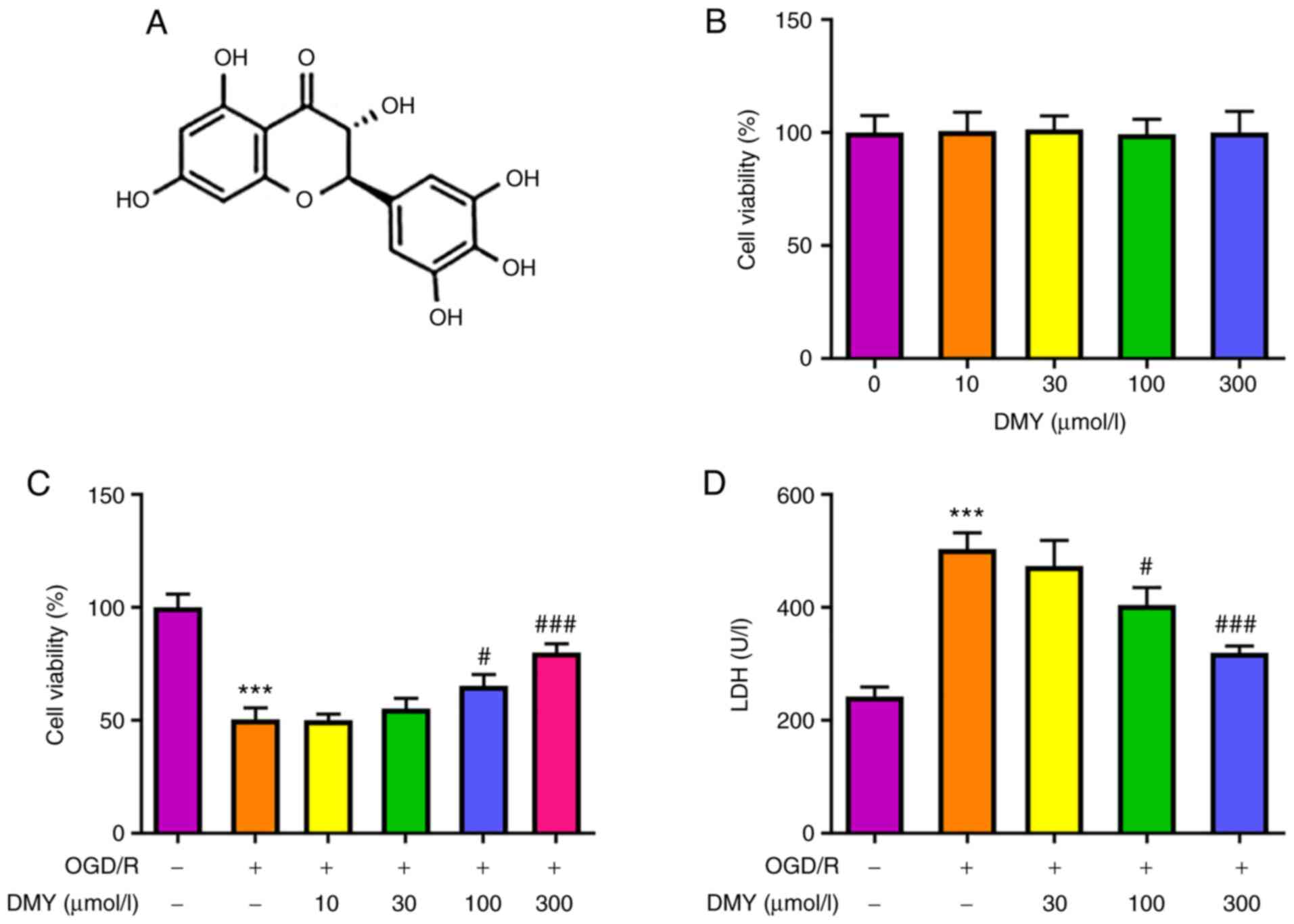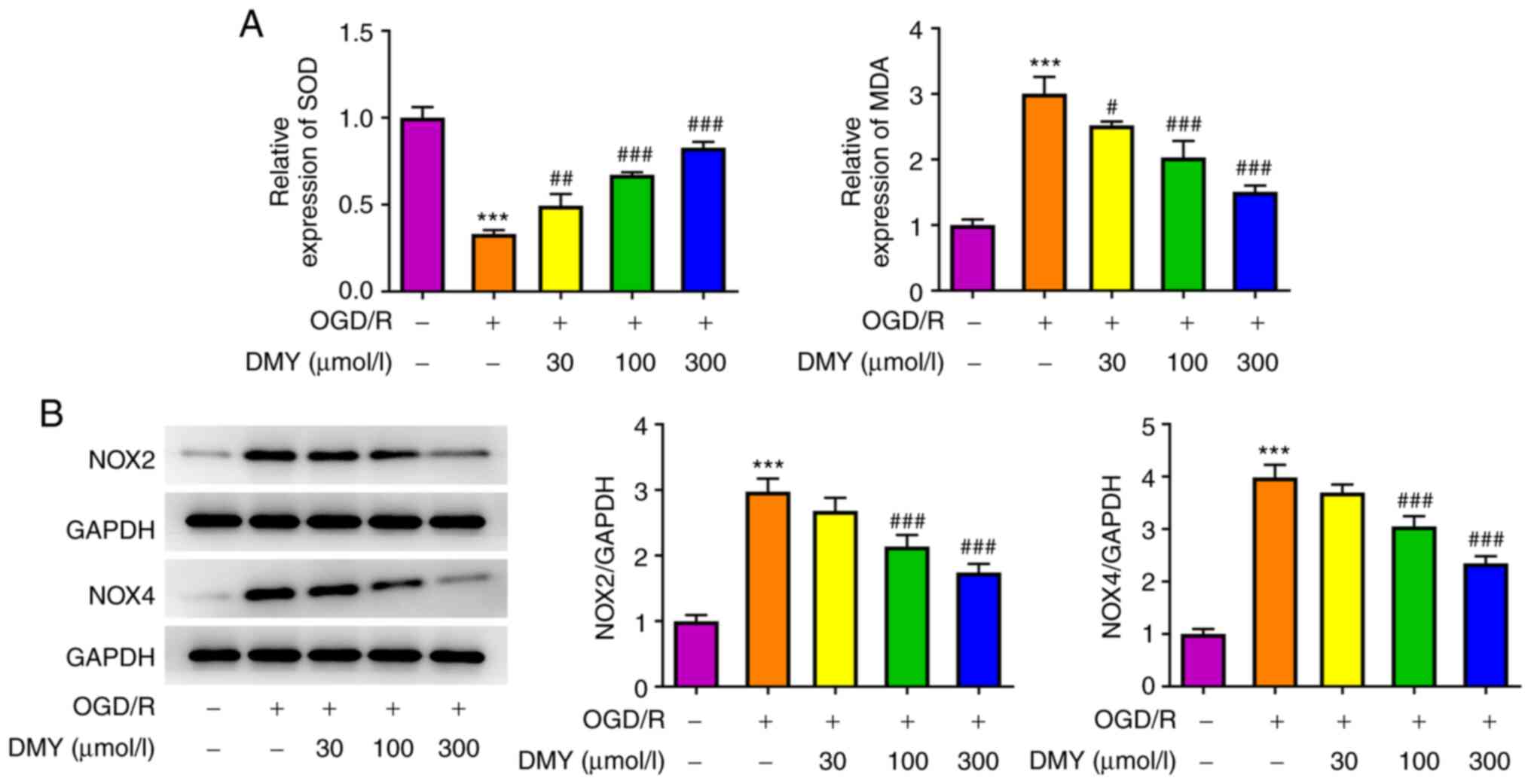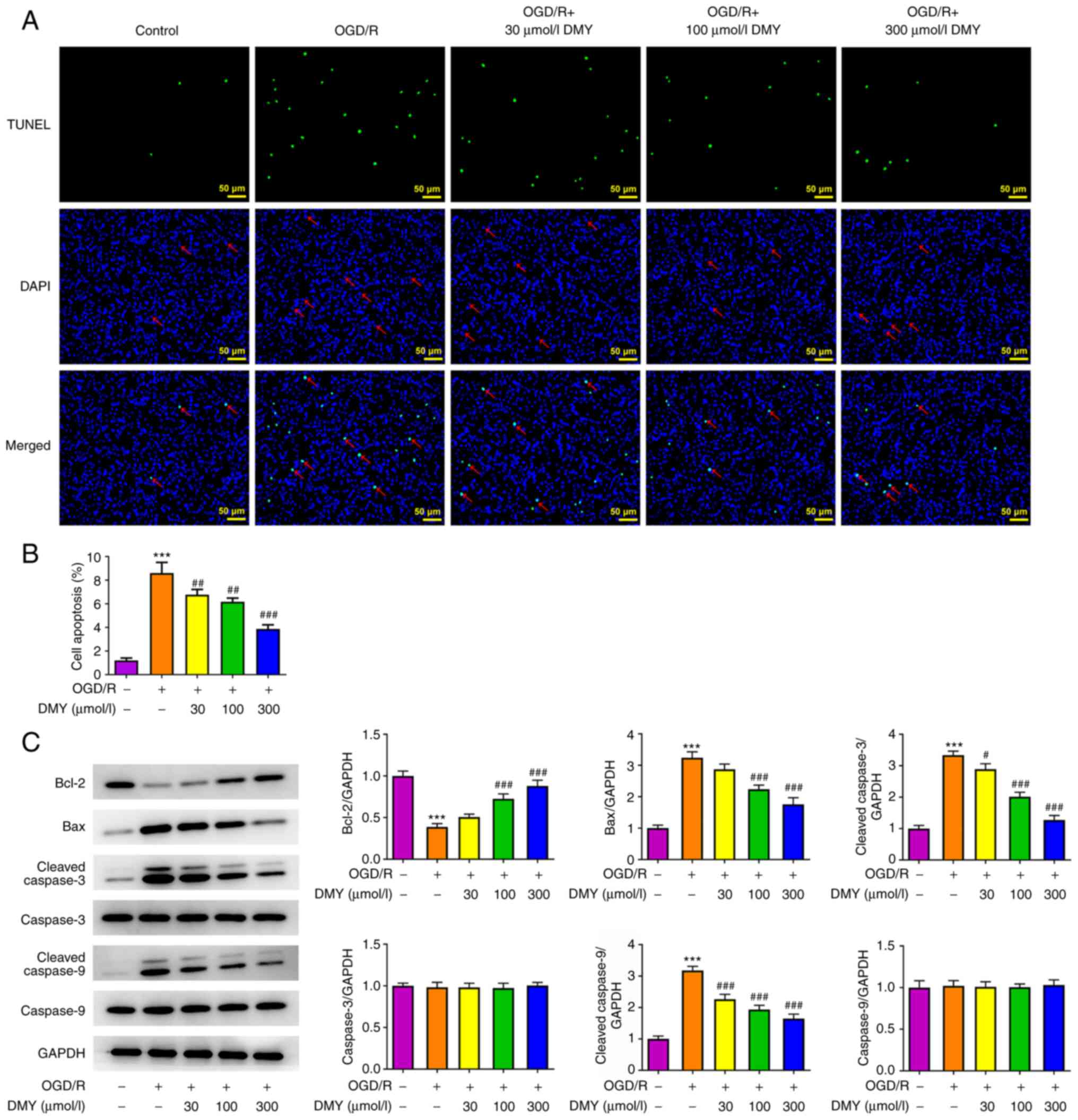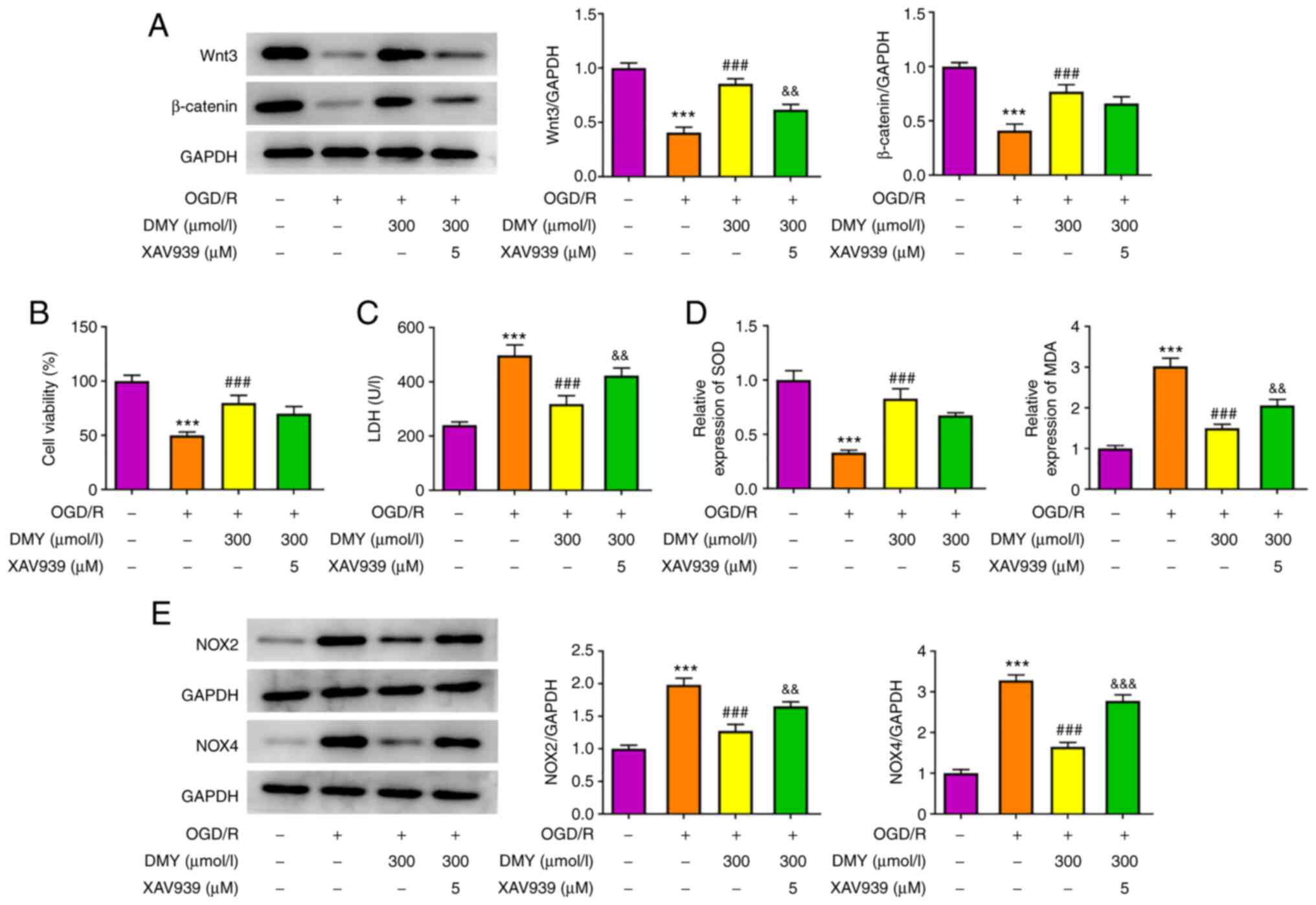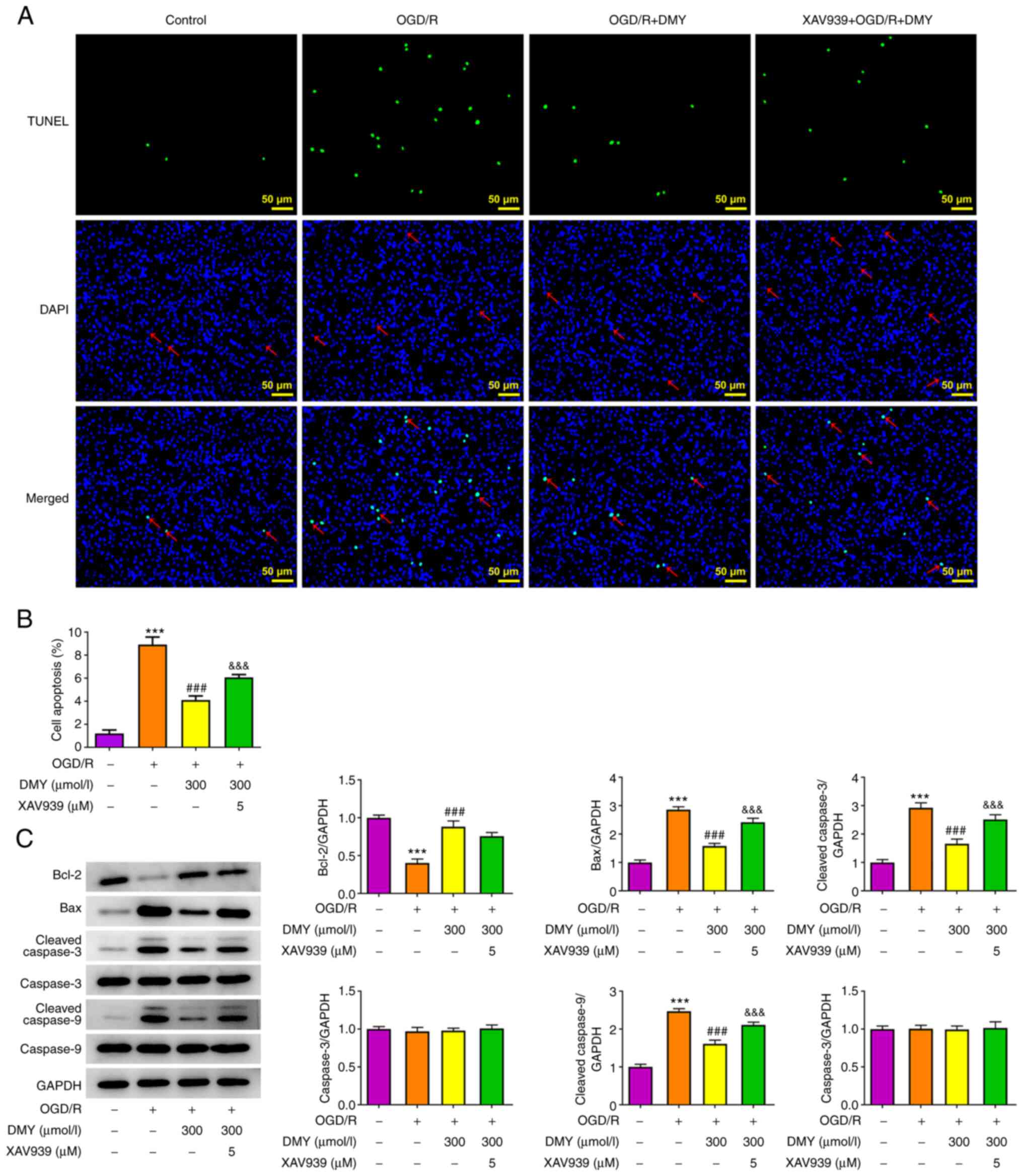|
1
|
Katan M and Luft A: Global burden of
stroke. Semin Neurol. 38:208–211. 2018. View Article : Google Scholar : PubMed/NCBI
|
|
2
|
Diener HC and Hankey GJ: Primary and
secondary prevention of ischemic stroke and cerebral hemorrhage:
JACC focus seminar. J Am Coll Cardiol. 75:1804–1818. 2020.
View Article : Google Scholar : PubMed/NCBI
|
|
3
|
Suda S, Nito C, Yokobori S, Sakamoto Y,
Nakajima M, Sowa K, Obinata H, Sasaki K, Savitz SI and Kimura K:
Recent advances in cell-based therapies for ischemic stroke. Int J
Mol Sci. 21:67182020. View Article : Google Scholar : PubMed/NCBI
|
|
4
|
Sun MS, Jin H, Sun X, Huang S, Zhang FL,
Guo ZN and Yang Y: Free radical damage in ischemia-reperfusion
injury: An obstacle in acute ischemic stroke after
revascularization therapy. Oxid Med Cell Longev. 2018:38049792018.
View Article : Google Scholar : PubMed/NCBI
|
|
5
|
Ulamek-Koziol M, Czuczwar SJ, Januszewski
S and Pluta R: Proteomic and genomic changes in tau protein, which
are associated with Alzheimer's disease after ischemia-reperfusion
brain injury. Int J Mol Sci. 21:8922020. View Article : Google Scholar : PubMed/NCBI
|
|
6
|
Feng Z, Sun Q, Chen W, Bai Y, Hu D and Xie
X: The neuroprotective mechanisms of ginkgolides and bilobalide in
cerebral ischemic injury: A literature review. Mol Med. 25:572019.
View Article : Google Scholar : PubMed/NCBI
|
|
7
|
Bhaskar S, Stanwell P, Cordato D, Attia J
and Levi C: Reperfusion therapy in acute ischemic stroke: Dawn of a
new era? BMC Neurol. 18:82018. View Article : Google Scholar : PubMed/NCBI
|
|
8
|
Zhang J, Chen Y, Luo H, Sun L, Xu M, Yu J,
Zhou Q, Meng G and Yang S: Recent update on the pharmacological
effects and mechanisms of dihydromyricetin. Front Pharmacol.
9:12042018. View Article : Google Scholar : PubMed/NCBI
|
|
9
|
Ren ZX, Zhao YF, Cao T and Zhen XC:
Dihydromyricetin protects neurons in an MPTP-induced model of
Parkinson's disease by suppressing glycogen synthase kinase-3 beta
activity. Acta Pharmacol Sin. 37:1315–1324. 2016. View Article : Google Scholar : PubMed/NCBI
|
|
10
|
Wei L, Sun X, Qi X, Zhang Y, Li Y and Xu
Y: Dihydromyricetin ameliorates cardiac ischemia/reperfusion injury
through Sirt3 activation. Biomed Res Int. 2019:68039432019.
View Article : Google Scholar : PubMed/NCBI
|
|
11
|
Chen Y, Lv L, Pi H, Qin W, Chen J, Guo D,
Lin J, Chi X, Jiang Z, Yang H and Jiang Y: Dihydromyricetin
protects against liver ischemia/reperfusion induced apoptosis via
activation of FOXO3a-mediated autophagy. Oncotarget. 7:76508–76522.
2016. View Article : Google Scholar : PubMed/NCBI
|
|
12
|
Liu P, Zou D, Chen K, Zhou Q, Gao Y, Huang
Y, Zhu J, Zhang Q and Mi M: Dihydromyricetin improves hypobaric
hypoxia-induced memory impairment via modulation of SIRT3
signaling. Mol Neurobiol. 53:7200–7212. 2016. View Article : Google Scholar : PubMed/NCBI
|
|
13
|
Zhang W, Wang S, Yin H, Chen E, Xue D,
Zheng Q, Gao X and Pan Z: Dihydromyricetin enhances the osteogenic
differentiation of human bone marrow mesenchymal stem cells in
vitro partially via the activation of Wnt/β-catenin signaling
pathway. Fundam Clin Pharmacol. 30:596–606. 2016. View Article : Google Scholar : PubMed/NCBI
|
|
14
|
Li P, Zhang Y and Liu H: The role of
Wnt/β-catenin pathway in the protection process by dexmedetomidine
against cerebral ischemia/reperfusion injury in rats. Life Sci.
236:1169212019. View Article : Google Scholar : PubMed/NCBI
|
|
15
|
Du Y, Ma X, Ma L, Li S, Zheng J and Lv J,
Cui L and Lv J: Inhibition of microRNA-148b-3p alleviates
oxygen-glucose deprivation/reoxygenation-induced apoptosis and
oxidative stress in HT22 hippocampal neuron via reinforcing
Sestrin2/Nrf2 signalling. Clin Exp Pharmacol Physiol. 47:561–570.
2020. View Article : Google Scholar : PubMed/NCBI
|
|
16
|
Du L, Li X, Zhen L, Chen W, Mu L, Zhang Y
and Song A: Everolimus inhibits breast cancer cell growth through
PI3K/AKT/mTOR signaling pathway. Mol Med Rep. 17:7163–7169.
2018.PubMed/NCBI
|
|
17
|
Guo Y and Pei X: Tetrandrine-induced
autophagy in MDA-MB-231 triple-negative breast cancer cell through
the inhibition of PI3K/AKT/mTOR signaling. Evid Based Complement
Alternat Med. 2019:75174312019. View Article : Google Scholar : PubMed/NCBI
|
|
18
|
Kangari P, Zarnoosheh Farahany T, Golchin
A, Ebadollahzadeh S, Salmaninejad A, Mahboob SA and Nourazarian A:
Enzymatic antioxidant and lipid peroxidation evaluation in the
newly diagnosed breast cancer patients in Iran. Asian Pac J Cancer
Prev. 19:3511–3515. 2018. View Article : Google Scholar : PubMed/NCBI
|
|
19
|
Zhao W, Geng D, Li S, Chen Z and Sun M:
LncRNA HOTAIR influences cell growth, migration, invasion, and
apoptosis via the miR-20a-5p/HMGA2 axis in breast cancer. Cancer
Med. 7:842–855. 2018. View Article : Google Scholar : PubMed/NCBI
|
|
20
|
Huang HL, Wang N, Zhou H and Yu CY: Study
on influence of transient ischemic attack on subsequent cerebral
infarction. Eur Rev Med Pharmacol Sci. 20:5164–5167.
2016.PubMed/NCBI
|
|
21
|
Cipolla MJ, Liebeskind DS and Chan SL: The
importance of comorbidities in ischemic stroke: Impact of
hypertension on the cerebral circulation. J Cereb Blood Flow Metab.
38:2129–2149. 2018. View Article : Google Scholar : PubMed/NCBI
|
|
22
|
Paul S and Candelario-Jalil E: Emerging
neuroprotective strategies for the treatment of ischemic stroke: An
overview of clinical and preclinical studies. Exp Neurol.
335:1135182021. View Article : Google Scholar : PubMed/NCBI
|
|
23
|
Koh SH and Park HH: Neurogenesis in stroke
recovery. Transl Stroke Res. 8:3–13. 2017. View Article : Google Scholar : PubMed/NCBI
|
|
24
|
Paci M: Physiotherapy based on the Bobath
concept for adults with post-stroke hemiplegia: A review of
effectiveness studies. J Rehabil Med. 35:2–7. 2003. View Article : Google Scholar : PubMed/NCBI
|
|
25
|
Gad H, Khan A, Akhtar N, Kamran S,
El-Sotouhy A, Dargham SR, Petropoulos IN, Ponirakis G, Shuaib A,
Streletz LJ and Malik RA: Corneal nerve and endothelial cell damage
in patients with transient ischemic attack and minor ischemic
stroke. PLoS One. 14:e02133192019. View Article : Google Scholar : PubMed/NCBI
|
|
26
|
Pertoldi S and Di Benedetto P:
Shoulder-hand syndrome after stroke. A complex regional pain
syndrome. Eura Medicophys. 41:283–292. 2005.PubMed/NCBI
|
|
27
|
Che F, Du H, Wei J, Zhang W, Cheng Z and
Tong Y: MicroRNA-323 suppresses nerve cell toxicity in cerebral
infarction via the transforming growth factor-β1/SMAD3 signaling
pathway. Int J Mol Med. 43:993–1002. 2019.PubMed/NCBI
|
|
28
|
Guo CH, Cao T, Zheng LT, Waddington JL and
Zhen XC: Development and characterization of an inducible Dicer
conditional knockout mouse model of Parkinson's disease: Validation
of the antiparkinsonian effects of a sigma-1 receptor agonist and
dihydromyricetin. Acta Pharmacol Sin. 41:499–507. 2020. View Article : Google Scholar : PubMed/NCBI
|
|
29
|
Zhu H, Luo P, Fu Y, Wang J, Dai J, Shao J,
Yang X, Chang L, Weng Q, Yang B and He Q: Dihydromyricetin prevents
cardiotoxicity and enhances anticancer activity induced by
adriamycin. Oncotarget. 6:3254–3267. 2015. View Article : Google Scholar : PubMed/NCBI
|
|
30
|
Li H, Li Q, Liu Z, Yang K, Chen Z, Cheng Q
and Wu L: The versatile effects of dihydromyricetin in health. Evid
Based Complement Alternat Med. 2017:10536172017. View Article : Google Scholar : PubMed/NCBI
|
|
31
|
Fan TF, Wu TF, Bu LL, Ma SR, Li YC, Mao L,
Sun ZJ and Zhang WF: Dihydromyricetin promotes autophagy and
apoptosis through ROS-STAT3 signaling in head and neck squamous
cell carcinoma. Oncotarget. 7:59691–59703. 2016. View Article : Google Scholar : PubMed/NCBI
|
|
32
|
Chen N and Wang J: Wnt/β-catenin signaling
and obesity. Front Physiol. 9:7922018. View Article : Google Scholar : PubMed/NCBI
|
|
33
|
Zhou L, Chen X, Lu M, Wu Q, Yuan Q, Hu C,
Miao J, Zhang Y, Li H, Hou FF, et al: Wnt/β-catenin links oxidative
stress to podocyte injury and proteinuria. Kidney Int. 95:830–845.
2019. View Article : Google Scholar : PubMed/NCBI
|
|
34
|
Li P, Wang Y, Liu X, Zhou Z, Wang J, Zhou
H, Zheng L and Yang L: Atypical antipsychotics induce human
osteoblasts apoptosis via Wnt/β-catenin signaling. BMC Pharmacol
Toxicol. 20:102019. View Article : Google Scholar : PubMed/NCBI
|
|
35
|
Jia L, Piña-Crespo J and Li Y: Restoring
Wnt/β-catenin signaling is a promising therapeutic strategy for
Alzheimer's disease. Mol Brain. 12:1042019. View Article : Google Scholar : PubMed/NCBI
|















